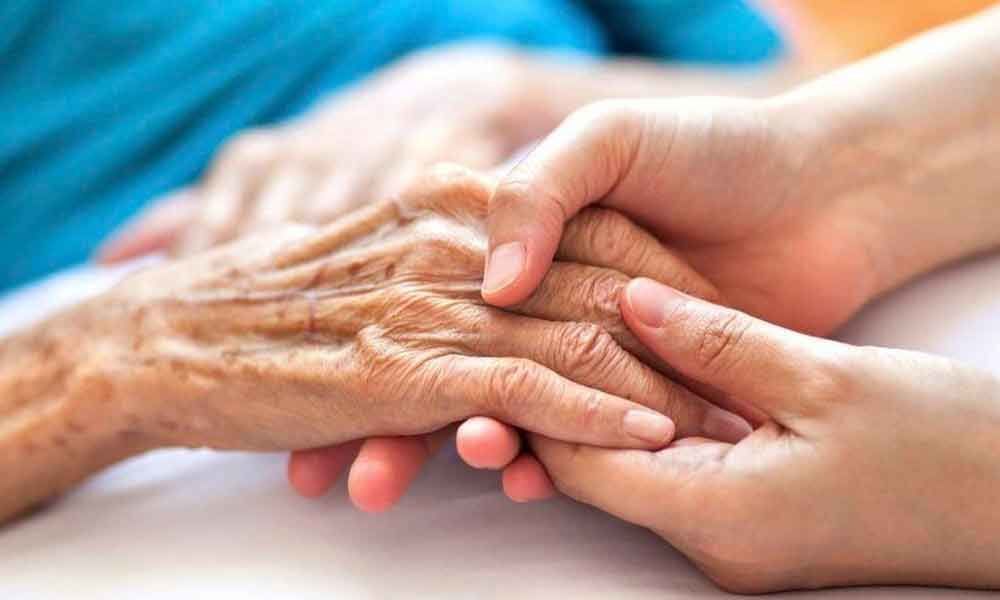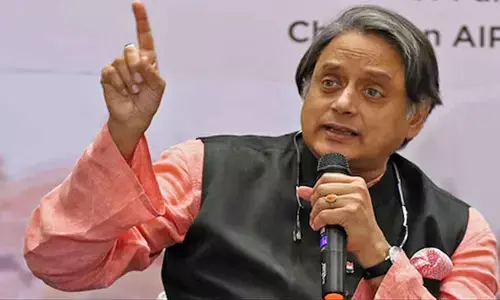Role of communication in palliative care

The contemporary health ecosystem is enormously complex, surrounding many participants such as various levels of care providers; suppliers of medicine and surgical equipment; patients and their families; and social workers.
The contemporary health ecosystem is enormously complex, surrounding many participants such as various levels of care providers; suppliers of medicine and surgical equipment; patients and their families; and social workers. Palpably, the societies in which we are living at present cannot meet the health needs, until and unless the aforesaid biome works in close coordination.
One of the major healthcare issues that the present-day world sternly faces is issues concerning palliative care. Palliative care simply means specialised medical care for people living with a serious illness. It is focused on relief from the symptoms and stress of stern diseases.
The very objective of palliative care is to improve the quality of life for both the patients and their families. Customarily, a specially-trained team of doctors and nurses provide palliative care.
In order to provide an extra layer of support, other specialist doctors also work in conjunction with the original team. Despite the fact that palliative care is suitable at any age and stage in a staid disease that can be provided along with remedial treatment, in actual fact, its reach is limited only to a few developed nations.
According to a report, it is estimated that more than 40 million people in the world lack palliative care, of which a major share is taken by the third world countries — to be very precise, people living in Africa are nearly half of them.
A study of 234 countries, conducted in the year 2011, found that only 20 countries have incorporated palliative care services in a preferred manner. Further, the statistics reveal that as many as 98 countries do not have palliative care services at all, while 75 countries have only isolated palliative care services.
For all intents and purposes, there is a need for countries such as India to have an integrated health system to address both response and preventive measures of health. Bowing to many issues such as financial and social, access to healthcare is denied to large groups of people in many parts of the world.
In the same proportion to as that of the increase in the population of the youth, the population of the elderly persons is also increasing — posing questions to various new dimensions of health issues. The advent of computers has resulted in sedentary works. Besides, the lifestyle of individuals has become a major concern for incidences of new diseases.
It is a matter of fact that countries like India face a shortage of infrastructure and healthcare centres — the people living in the far-flung areas are out of reach to such facilities. In such circumstances, where obsolete healthcare systems are still predominant, spreading of palliative care measures is a very tough issue, per se! However, effective communication can play a vital role in addressing this concern.
As Rollo May once said, "Communication leads to community, that is, to understanding, intimacy and mutual valuing." The three key terms used here i.e. understanding, intimacy and mutual valuing are very essential in palliative care. The standing of communication in healthcare has long been acknowledged within medical education as a substance of good care.
Palliative care demands for communication at critical times — honest discussions with patients, and their families. Of course, there is empirical evidence insofar as the research on palliative care is concerned. Nonetheless, most patients with deadly diseases and their families are under no circumstances involved in discussions concerning end-of-life care issues.
Evidently, communication on the matters concerning the end-of-life care topics increases the possibility of concordance between the goals of the patient and the possibility of achieving them in accordance with their medical reports. This process with care would ultimately increase patient's satisfaction levels.
On the other hand, poor communication among various healthcare staff impacts productivity and patient safety — it would surely charge implications. Genuflecting to the circumstances that the healthcare industry still clings to outmoded methods of communication, there arise many problems in communication in palliative care. In all probabilities, not identifying suitable personnel to respond in a timely manner is one of the major glitches in such communication failures.
Yes, teamwork is not new to the health system. Nonetheless, due to the significance of the communication for palliative care, it becomes imperative that efficiencies and effectiveness in communication could be achieved through closer collaboration within the ecosystem.
Towards such an awesome system, Dr M R Rajagopal, a Padma Shri award winner aptly known as the 'Father of Palliative Care in India', has been working for years in the palliative communication to ensure the dignity of life to patients with a terminal illness. His organisation 'Pallium', recently in association with Worldwide Hospice and Palliative Care Alliance (WHPCA), has launched a project called "Aarohan – Empowering the voices of those who suffer."
As of now, this project demands a command on the English language from the participants, as sessions are conducted online using the ECHO virtual platform over a 5-month period in English. However, the organisation hopes to conduct similar sessions in regional languages in the future.
Palliative care is most effective when considered in the early stages of the illness. Early palliative care through communication not only improves the quality of life for patients but also reduces unnecessary hospitalisations and use of health-care services.
Communication for palliative care is proven effective when used sensibly. Such communication practices should be adopted by national health systems in the gamut of care for people with chronic and life-threatening conditions — linking it to prevention and early detection programmes.
Advancements in technology have also transformed the modes of communication. Thus, communication among clinicians, and between clinicians and patients have assumed many forms.
In the case of communication for palliative care, technology can be suitably applied to turn the discussions into an exceedingly collaborative form of communication, which may rather take place over the Internet and smartphones.
(An Air veteran & a mass communicator — Author of more than 10 mass media books)










